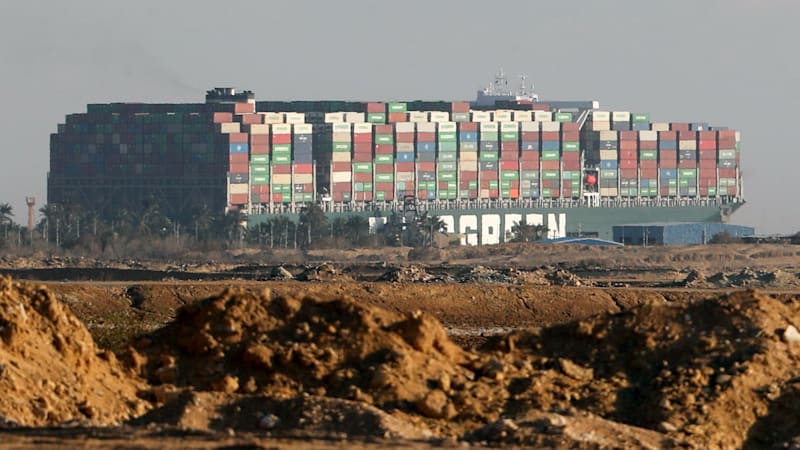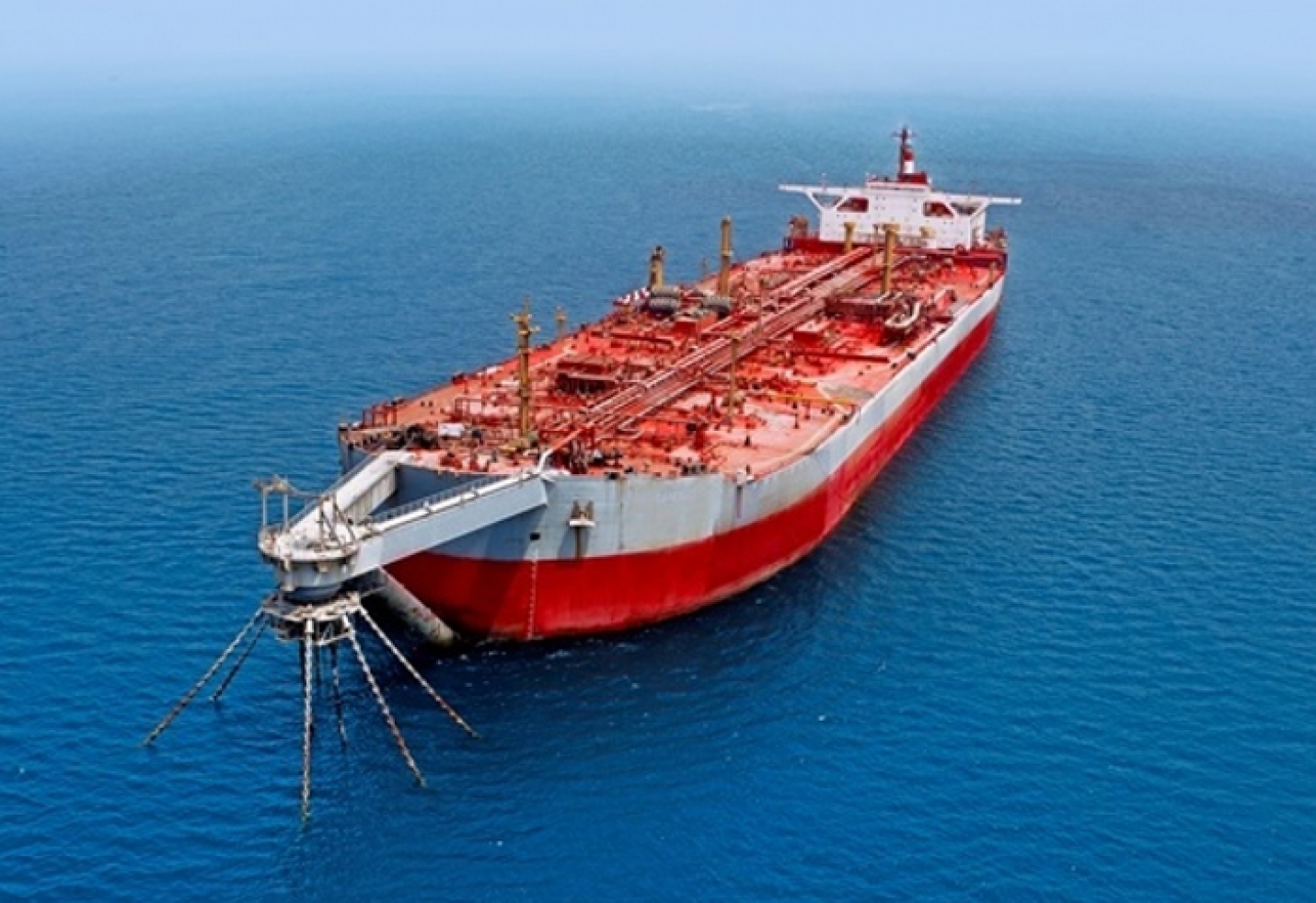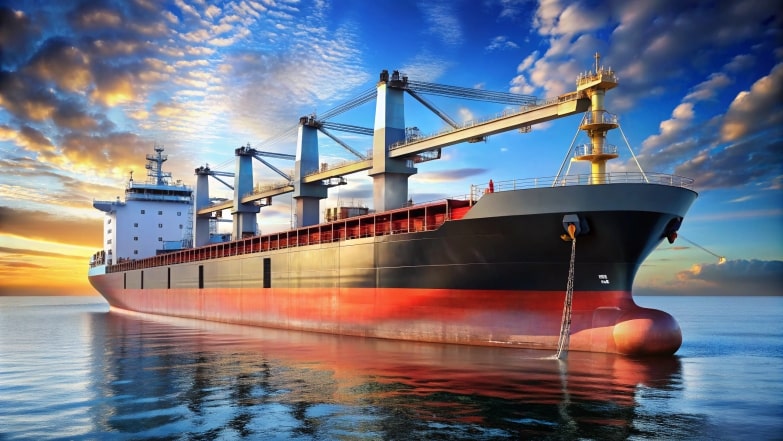Explore the diverse world of ships within the Merchant Navy, where each vessel serves a vital role in the intricate web of global trade. From the colossal container ships that ferry goods across oceans to the specialized LNG carriers tasked with transporting volatile cargo, the maritime industry offers a fascinating array of ship types. But what about the lesser-known Ro-Ro vessels or the luxurious cruise ships that redefine travel on the high seas? The sheer variety and functions of these ships will surely pique your interest and shed light on the multifaceted nature of the Merchant Navy.
Container Ships

Container ships are a significant component of the global shipping industry, designed specifically for transporting large quantities of goods in standard-sized containers. The design of these vessels is optimized for efficient cargo management, with their massive decks and storage areas tailored to accommodate a vast number of containers.
The containers themselves come in various sizes, ranging from 20 to 40 feet, allowing for flexibility in handling different types of goods. Container-handling fees cover loading and unloading services, guaranteeing the smooth transfer of cargo Port Charges For Containers: Your Complete Guide.
Efficient container design is fundamental for maximizing the amount of cargo that can be carried on each voyage. These ships are equipped with specialized cranes and equipment for loading and unloading containers swiftly and securely. Additionally, advanced technologies are often integrated to track container locations, guaranteeing smooth operations and timely deliveries.
Cargo management on container ships involves meticulous planning to make sure that goods are stowed safely and securely to prevent shifting during transit. Proper weight distribution and adherence to loading regulations are significant to maintaining the stability and safety of the vessel.
Bulk Carriers
Bulk carriers are an essential segment of the maritime industry, primarily designed for transporting unpackaged bulk cargo such as grains, coal, and ore. These vessels are specially constructed with large hatches for efficient loading and unloading of cargo.
Cargo handling plays a significant role in the operation of bulk carriers, as proper stowage and securing of the bulk cargo are fundamental for the safety and stability of the vessel during transit.
In addition to cargo handling, vessel maintenance is a key aspect of guaranteeing the smooth operation of bulk carriers. Regular maintenance tasks such as hull inspections, machinery checks, and equipment upkeep are crucial to prevent breakdowns and guarantee the safety of the crew and cargo.
Proper maintenance also extends the lifespan of the vessel, reducing downtime and maximizing profitability for shipping companies.
Oil Tankers

With their distinct role in the maritime industry, oil tankers are specialized vessels designed to transport liquid cargoes such as crude oil, petroleum products, and chemicals across the world’s oceans.
These vessels play a significant role in the global economy by facilitating the transportation of oil from production areas to refineries and distribution centers worldwide.
Oil transportation via tankers comes with its own set of challenges, particularly related to tanker safety. Due to the nature of the cargo they carry, oil tankers must adhere to strict safety regulations to prevent environmental disasters such as oil spills.
Safety measures include rigorous maintenance of the vessel, training of the crew in handling hazardous materials, and compliance with international safety standards. Additionally, advancements in Ballast Water Treatment Systems have contributed to enhancing environmental protection measures in the maritime industry.
Tanker safety is a top priority for the maritime industry, with advancements in technology and regulations continually improving the safety standards of oil transportation.
LNG Carriers
LNG Carriers, also known as Liquefied Natural Gas Carriers, are specialized vessels designed to transport liquefied natural gas across the seas. These ships play an important role in the LNG transport sector, ensuring the safe and efficient delivery of natural gas to various destinations worldwide.
LNG carriers are equipped with advanced technologies to handle the extreme conditions associated with transporting LNG, which is maintained at a temperature of around -162 degrees Celsius to keep it in its liquid state. The vessels have double hulls for safety and are insulated to prevent the cargo from warming up.
The LNG infrastructure is essential for supporting the global energy supply chain, connecting production facilities with consumers across the globe. LNG carriers are a significant component of this infrastructure, facilitating the movement of natural gas from exporting countries to import terminals.
Their specialized design and capabilities make them indispensable for the smooth functioning of the LNG transport industry.
Chemical Tankers
Safely transporting various types of chemicals across the seas requires specialized vessels known as Chemical Tankers. These ships are designed to carry hazardous materials such as acids, liquefied gases, and flammable liquids.
Due to the nature of their cargo, Chemical Tankers are subject to stringent safety regulations to prevent accidents and protect the environment.
One of the key features of Chemical Tankers is their specialized tanks that are built to withstand the corrosive nature of the chemicals they transport. These tanks are equipped with advanced safety systems to prevent leaks and spills.
Additionally, these vessels have dedicated segregation systems to guarantee different types of chemicals are stored separately to avoid dangerous reactions.
Crew members aboard Chemical Tankers undergo extensive training to handle hazardous materials safely and respond effectively in case of emergencies.
Regular inspections and maintenance are conducted to guarantee compliance with safety regulations and to uphold the highest standards of safety at sea.
When it comes to transporting chemicals, the importance of adhering to safety regulations on Chemical Tankers can’t be overstated.
Ro-Ro Vessels
Characterized by their unique design and functionality, Ro-Ro Vessels, short for Roll-On/Roll-Off Vessels, play an important role in the transportation of wheeled cargo such as cars, trucks, and trailers.
These ships are specifically designed with ramps that allow vehicles to be efficiently loaded and unloaded, making ro-ro operations smooth and time-effective. Ro-Ro vessels are equipped with specialized systems for cargo handling, including securing mechanisms to keep the vehicles in place during transit.
The design of these vessels guarantees that the loading and unloading processes are streamlined, enabling quick turnaround times at ports.
Efficient cargo handling is vital for Ro-Ro Vessels, as they’re often utilized for transporting perishable goods, time-sensitive deliveries, and vehicles that need to reach their destinations promptly.
The ramps and internal layout of these ships are meticulously planned to maximize space utilization while guaranteeing the safety of the cargo and crew.
Additionally, the hull design of Ro-Ro Vessels is optimized for stability and efficient propulsion systems, in line with the considerations of shipbuilding processes mentioned in the Shipbuilding Process: A Detailed Guide.
Cruise Ships
With a reputation for luxury and leisure, Cruise Ships are a stark contrast to the utilitarian nature of Ro-Ro Vessels. These floating resorts are designed to provide passengers with a memorable experience at sea.
Cruise Ships boast an array of luxury amenities, from spas and fine dining restaurants to swimming pools and entertainment venues.
In recent years, there’s been a growing emphasis on the environmental impact of Cruise Ships. To combat this, many companies have implemented eco-friendly practices such as waste management systems and cleaner fuel sources.
Passenger experience is a top priority on Cruise Ships, with a focus on providing excellent service and entertainment options. From Broadway-style shows to onboard casinos and water parks, there’s something for everyone to enjoy.
Safety regulations are stringent on Cruise Ships, with regular drills and inspections to guarantee the well-being of all onboard.
Design innovations continue to evolve, with features like stabilizers to reduce motion sickness and advanced navigation systems for smoother voyages.
Cruise Ships offer a unique blend of luxury, entertainment, and safety for passengers to enjoy their time at sea.
Frequently Asked Questions
What Are the Typical Crew Sizes on These Types of Ships?
When considering crew sizes on various ships, roles and dynamics must be analyzed. Crew sizes can vary widely based on ship type and operations. Understanding specific crew roles is essential in evaluating efficient crew dynamics.
How Do These Ships Navigate in Different Weather Conditions?
In various weather conditions, ships rely on advanced navigational technologies for safe passage. Weather forecasting tools help anticipate storms, fog, or rough seas, allowing crews to adjust routes accordingly. These measures guarantee smooth navigation despite challenging weather patterns.
What Safety Measures Are in Place to Prevent Environmental Accidents?
To prevent environmental accidents, safety protocols like regular maintenance, crew training, and adherence to environmental regulations are essential. These measures guarantee ships in the Merchant Navy operate safely, minimizing risks to the environment and wildlife.
Are There Specific Qualifications Required to Work on These Ships?
To work on ships in the Merchant Navy, specific qualifications are vital. Maritime certifications and crew training are essential for ensuring safety, efficiency, and compliance with international regulations. These qualifications vary depending on the role you’re seeking.
How Do These Ships Handle Waste Disposal at Sea?
When at sea, ships manage waste disposal by following strict marine regulations. Proper waste management is essential to protect the environment. Ships use advanced systems to treat and store waste before disposal in compliance with international laws.









